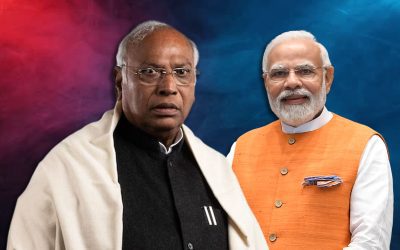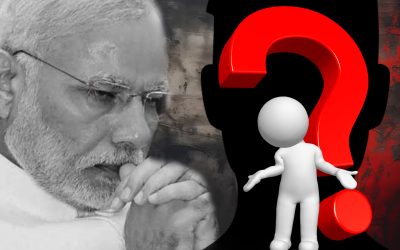In a significant move that echoes the sentiments of Kerala’s diverse population, Chief Minister Pinarayi Vijayan has taken a resolute stand against the proposed implementation of the Uniform Civil Code (UCC) by the BJP-led central government. The Chief Minister’s decision to move a resolution in the Kerala State Assembly signifies not just a political stance, but a safeguarding of the state’s rich cultural and religious plurality. This blog delves into the rationale behind the CM’s move, the implications of the proposed UCC, and the broader significance of Kerala’s resistance to this policy.
The Controversial Proposition: Uniform Civil Code
The concept of a Uniform Civil Code aims to replace the personal laws that are currently applicable to various religious communities in India with a single set of rules governing matters such as marriage, divorce, inheritance, and adoption, among others. Proponents argue that such a code would promote gender equality and secularism, while opponents contend that it could erode the distinct cultural and religious identities of India’s diverse population.
Kerala’s Melting Pot: A Cultural Mosaic
Kerala stands out as a state that thrives on its diverse cultural mosaic, with a harmonious coexistence of various religious and ethnic communities. Chief Minister Pinarayi Vijayan’s move to reject the imposition of the UCC is a reflection of the state’s commitment to preserving this unique social fabric. Kerala’s cultural syncretism has been nurtured over centuries, and any move to impose a uniform code could disrupt the delicate equilibrium that has been maintained.
Protection of Religious Plurality
One of the primary concerns raised by Chief Minister Vijayan is that the imposition of a UCC could potentially infringe upon the religious and cultural rights of various communities. The UCC might be viewed as a threat to personal laws that are deeply intertwined with religious practices. By resisting the UCC, Kerala’s government is sending a clear message that it prioritizes the protection of its citizens’ rights to practice their religion and uphold their traditions without interference.
Voicing the Concerns of the Citizens
The move to introduce the resolution against the UCC is not merely a political gesture but a response to the concerns of the people. The Kerala Legislative Assembly’s expression of concern and dismay at the central government’s unilateral decision highlights the state’s commitment to democratic principles. The importance of seeking public opinion through consultations and debates on such critical matters cannot be overstated.
Participatory Democracy: The Role of Opposition
The Congress-led opposition UDF’s active involvement in suggesting amendments to the resolution underscores the vitality of participatory democracy. While differing on many fronts, the political rivals come together to uphold the interests of Kerala’s citizens. The collaborative effort in shaping the resolution signifies the broader commitment to pluralism and the welfare of the state’s residents.
A Nationwide Dialogue: Public Submissions
The Law Commission of India’s reception of public submissions regarding the implementation of the UCC indicates that this is not just a matter of Kerala’s concern but a nationwide discourse. The varying opinions and perspectives from citizens across India highlight the complexity of the issue. While some advocate for a uniform code to ensure equal treatment for all citizens, others emphasize the need to preserve cultural and religious diversity.
Safeguarding Women’s Rights
One of the central arguments often put forth in favour of a Uniform Civil Code is the potential to promote gender equality by standardizing laws related to marriage, divorce, and inheritance. While this intention is noble, Chief Minister Pinarayi Vijayan’s resolution underscores the need to carefully balance this objective with the protection of religious and cultural rights. Kerala’s unique social fabric has historically provided women with a higher status and better rights compared to many other parts of the country. The fear is that a uniform code might inadvertently dilute the progressive rights and safeguards that women in Kerala currently enjoy under their respective personal laws.
Preserving Minority Rights
Kerala is home to a multitude of religious and ethnic minorities, each with its distinct practices and traditions. The UCC, if not implemented thoughtfully, could lead to the erasure of these unique identities in favour of a uniform legal framework. Chief Minister Vijayan’s stand against the UCC highlights the importance of respecting and preserving the rights of these minority communities. It signifies a commitment to ensuring that minority voices are not silenced or marginalized in the pursuit of uniformity.
Promoting Social Harmony
Kerala’s history is replete with examples of communities coexisting harmoniously despite their differences. The state’s resistance to the UCC can be seen as a proactive effort to maintain this social harmony. Rather than imposing a uniform code that might create divisions and conflicts, the Chief Minister’s resolution seeks to protect the delicate balance that has been nurtured over generations. By preserving the autonomy of different communities to govern their matters, Kerala aims to contribute to a more harmonious and tolerant society.
A Model for Pluralistic Governance
Chief Minister Pinarayi Vijayan’s move to reject the imposition of the UCC positions Kerala as a model for pluralistic governance. The state’s long-standing tradition of embracing diversity and accommodating various viewpoints is being upheld in the face of a policy proposal that could potentially challenge these values. This stance demonstrates that governance can be both inclusive and effective, catering to the needs and aspirations of a diverse citizenry while upholding the principles of social justice and equality.
The Role of Civil Society
Kerala’s resistance to the UCC is not limited to its political leadership but also involves active participation from civil society organizations, religious bodies, and cultural groups. This collective effort showcases the vibrancy of democratic engagement in the state. The involvement of various stakeholders highlights the significance of public discourse and collaboration in shaping important policy decisions. It reaffirms the idea that safeguarding cultural and religious diversity is not the sole responsibility of the government but a shared commitment of society as a whole.
Balancing Tradition and Progress
The resolution against the UCC reflects the delicate balance that policymakers must strike between tradition and progress. Kerala’s refusal to blindly embrace a uniform code should not be misconstrued as resistance to change. Instead, it is a call for a balanced approach that respects the aspirations of its citizens while acknowledging the complexities of cultural and religious identities. This nuanced perspective encourages a more inclusive form of progress that doesn’t compromise the core values and beliefs of various communities.
Global Implications
Kerala’s stand against the imposition of the UCC also resonates on a global scale. In an increasingly interconnected world, where cultural diversity is celebrated, the state’s commitment to preserving its unique identity sends a message that resonates beyond national borders. It underscores the importance of valuing cultural heritage and pluralism, even in the face of homogenizing global trends.
Legal Pluralism and State Autonomy
Kerala’s resistance to the imposition of the UCC also highlights the importance of legal pluralism and the autonomy of states in matters of personal laws. The Indian Constitution grants states the power to make laws on subjects listed in the Concurrent List. By opposing the UCC, Kerala is asserting its constitutional right to maintain its distinct legal framework while respecting the diverse cultural and religious needs of its citizens. This showcases the significance of allowing states to have a say in shaping policies that directly impact their constituents.
Potential for Social Disruption
The process of transitioning from diverse personal laws to a uniform code is a complex undertaking. Chief Minister Vijayan’s resolution acknowledges the potential for social disruption and conflict that could arise during this transition. The unique cultural and religious practices that have evolved over centuries cannot be easily harmonized into a single code without causing upheaval. Kerala’s move underscores the need for careful consideration and gradual reform rather than rushed uniformity that could have unintended consequences.
Preserving Cultural Heritage
Every community’s laws are intricately woven into the fabric of its cultural heritage. Chief Minister Vijayan’s decision to oppose the UCC signifies a commitment to preserving this rich heritage. Kerala’s various communities have their unique ways of celebrating marriages, managing inheritance, and addressing family matters. These practices not only hold historical significance but also contribute to the state’s cultural identity. By protecting these traditions, Kerala’s government is safeguarding a crucial aspect of its legacy.
Unity in Diversity
The diversity within India’s borders is often referred to as the country’s strength. Kerala’s refusal to conform to a uniform civil code contributes to the broader idea of unity in diversity. Rather than imposing a one-size-fits-all approach, Kerala is championing the idea that a united nation can thrive while embracing and celebrating its diverse cultural, religious, and social practices. This unity in diversity not only enriches the nation’s cultural tapestry but also sets an example for global inclusivity.
Lessons from History
History provides valuable insights into the consequences of erasing cultural and religious diversity in the name of uniformity. Many nations around the world have faced challenges and conflicts due to attempts at imposing a single identity or legal framework on diverse populations. Kerala’s resolution against the UCC demonstrates an awareness of these historical lessons, emphasizing the need to learn from past mistakes and tread carefully when dealing with matters that could potentially disrupt social harmony.
International Human Rights Standards
Kerala’s opposition to the UCC is also rooted in the state’s commitment to international human rights standards. The state’s move aligns with the United Nations principles of cultural diversity, which emphasize the importance of protecting cultural expressions and practices. Chief Minister Vijayan’s resolution showcases Kerala’s dedication to upholding these standards and promoting a global environment where every culture and identity is respected and preserved.
A Catalyst for National Dialogue
The resolution against the UCC has ignited a nationwide dialogue on the delicate balance between uniformity and diversity. Kerala’s proactive stance has encouraged citizens across the country to engage in discussions about the implications of a uniform civil code. This dialogue transcends political affiliations and fosters a collective understanding of the complexities involved. By sparking this conversation, Kerala’s government has shown leadership in creating an informed and democratic discourse.
A Precedent for Collaborative Governance
Kerala’s approach to the UCC serves as a precedent for collaborative governance. The involvement of both the ruling party and the opposition in shaping the resolution demonstrates a commitment to the collective well-being of the state’s citizens. This collaborative spirit sets a benchmark for how political adversaries can unite on issues of critical importance, transcending partisan differences for the greater good.
Kerala Chief Minister Pinarayi Vijayan’s resolute stand against the imposition of the Uniform Civil Code (UCC) in the state’s assembly is a testament to the enduring values of cultural diversity, religious harmony, and participatory democracy. This significant move goes beyond mere politics, representing a commitment to safeguarding the unique identities of various communities while navigating the intricate landscape of governance. As we reflect on the implications of this resolution, it becomes evident that Kerala’s resistance to the UCC holds profound significance on multiple fronts.
At its core, the resolution reflects Kerala’s unwavering dedication to preserving its rich cultural heritage and religious pluralism. By rejecting the UCC, the state sends a powerful message that the protection of individual and collective rights takes precedence over uniformity. This stand is a clear recognition that societal progress can be achieved without compromising the values, traditions, and beliefs that have defined generations.
Kerala’s stance also underscores the importance of participatory democracy. The involvement of the opposition and civil society in shaping the resolution highlights the essence of open dialogue and collective decision-making. In a time when political polarization often dominates the discourse, Kerala sets an example of how collaboration and consensus-building can lead to policies that genuinely represent the diverse needs of the populace.
Furthermore, the resolution carries international implications, aligning with global efforts to promote cultural diversity and respect for human rights. Kerala’s commitment to upholding its unique identity resonates beyond national borders, emphasizing the universal significance of preserving heritage and nurturing pluralism.
In a rapidly changing world, where the forces of globalization and standardization can sometimes overshadow local identities, Kerala’s stance serves as a guiding beacon. It illuminates a path toward a harmonious coexistence of tradition and progress, where policies are crafted with sensitivity to the intricate tapestry of cultures that enrich the nation.
As India grapples with complex questions about governance, identity, and diversity, Kerala’s rejection of the UCC is a reminder that the nation’s strength lies in its ability to embrace its myriad identities and narratives. The resolution stands as a celebration of India’s unity in diversity, a celebration that is not passive but active—a celebration that calls for the preservation of heritage, the protection of rights, and the continuous pursuit of a just and inclusive society.
In Chief Minister Pinarayi Vijayan’s resolute words against the UCC, we find a reflection of the aspirations of a vibrant and diverse society, a society that cherishes its differences, seeks equitable progress, and stands united in its commitment to a better future. As the echoes of this historic resolution reverberate through the annals of Indian governance, they remind us that while paths to progress may vary, the destination remains the same—a society where every voice is heard, every identity respected, and every individual empowered to contribute to the tapestry of a united, diverse, and harmonious nation.








0 Comments